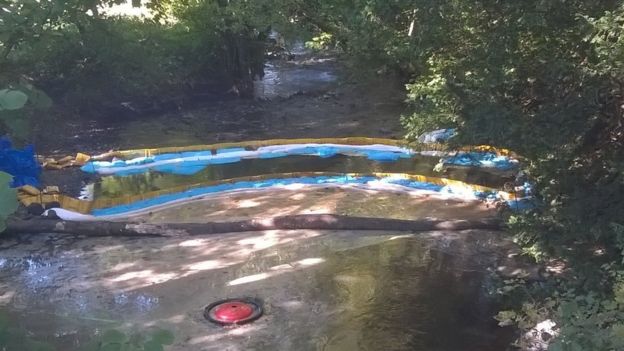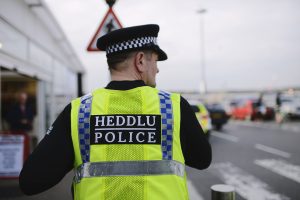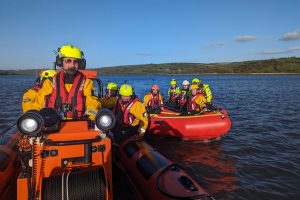 SOME OF the greats of radio started out on hospital radio.
SOME OF the greats of radio started out on hospital radio.
Also, former Radio One DJs Mike Smith, Chris Moyles and Scott Mills – to name but a few – started their broadcasting careers in what were little more than spare hospital cupboards with rudimentary soundproofing and Heath Robinson set ups.
There is a somewhat stereotypical view that hospital radio is not ‘real’ radio because it just caters for the people in the hospital the cupboard happens to be in.
However, hospital radio has joined the 21st century at the Prince Phillip Hospital in Llanelli, as Radio BGM takes to the airwaves and streams live online across the internet.
The Herald paid a visit to what still looks like a cupboard just inside the entrance to the hospital. On opening the door, we were met by Danny, a cheerful, bearded, and zesty soul. There was no sign of a cassette recorder or vinyl – and no sign of bland oldies churned out hour after hour to a captive audience. Danny was playing it all digital and all current music. He had his iPhone linked up to something he called ‘Periscope’, which he explained was streaming video of himself presenting the show to a much wider audience.
The Herald wanted to know what exactly was going on in this thoroughly modern cupboard /studio. Who better to ask than one of the driving forces behind the set-up, Dave Hurford. Dave is a Llanelli man born and bred and attended Old Road Primary School before heading for the posh end of town and enrolling at St Michaels School on the Bryn. We began by asking Dave how he had become involved in radio.
He said: “St Michaels was focussed on learning and it taught you to not just sit down and accept things. It gave you a kick to go out and get what you wanted. I never really looked at it as being a posh school – it
was just a good education. It was a strict upbringing and the school was ruled by a headmaster with a rod of iron. I used to do radio shows and the technical stuff. I always wanted to go into broadcasting but at that time your career path was mapped out – you either went down the mines or into the steelworks. I left school and began a career at Theatre Elli followed by work at a TV company and eventually a stint at Swansea Sound.”
Dave gave The Herald the low down on how Hospital Radio had started. He said, “It started back in the early 1970s in Bryntyrion Hospital. There was a small team of like-minded people interested in getting a hospital radio station together. It was meant to improve people’s time in hospital, helping them to relax. There were a lot of valves and vinyl at that time. The early beginnings were held together on a wing and a prayer. It is not an idea that was unique to Llanelli – it had been trialled in a number of hospitals. It was popular and gained support.”
Dave eventually went to work at the BBC where he works to this day. He is also a sound engineer at the Llanelli Talking Newspaper. Speaking about the early days in radio, he said: “There were a lot of people involved back then who had backgrounds in media. I was self-taught and learned as I went along. I used to do the presenting and the technical stuff. Like all kids, I had practiced in my bedroom with a microphone and cassette player. It was the ‘in thing’ to do to listen to the top forty and record it with your voiceover.”
There is no doubt that hospital radio plays an important part in serving the community. We asked Dave if there was still a future for hospital radio.
He told us: “Hospital Radio is one of these strange mediums which seems to have battled on for many years. Some are approaching 50th anniversaries. It is an amazing milestone when you think how much digital media is available. It is testament to the fact that it has found its own little niche.
“It is so local that you can almost touch it. We get volunteers coming in and we have to ground them to the notion that this is a very local service.
“It is easy to misconstrue hospital radio. It is a huge opportunity for people who are interested in developing a career in radio. There are people looking to change careers and this offers them a chance to learn something new.”
Dave continued: “The Llanelli Talking Newspaper is also important to me and I am very pleased to be associated with that. We take a copy of the talking news and import that onto our system and we play that out on the radio. We are always looking for volunteers. The youngsters we have here move on to university and some go on to work in the industry.”
Dave explained how the programming worked and offered some advice to anyone looking to go into a career in broadcasting.
“We have several programmes that go out through the week. We have a professional play-out system, which helps make it a very professional seamless play-out. It can actually run on autopilot, which means that the people coming in don’t have to have an intensive level of training. The programmes vary depending on the age of the people presenting them.
“I would recommend starting with Hospital Radio if you are thinking of going into broadcasting. It gives you a great chance to hone your skills. We are always looking for volunteers so if anyone is interested, they can pop in or contact us via our website : radiobgm.org. uk.”

















Add Comment